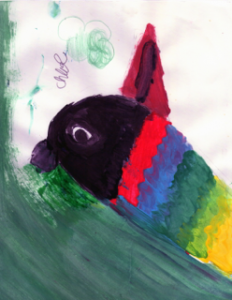My seven-year-old son has a speech disability as well as mild autism. This means that he has to work doubly hard to acquire sounds that come easily to most children, a task made harder still because the sounds are different in the two languages he is learning and living: English and Spanish.
This means many things.
First, he’s not too verbally outgoing in groups. It takes him longer to properly pronounce a sound let alone a word, a phrase, a sentence. He hangs out with the other kids at school, smiles and laughs. But he doesn’t do much of the talking.
We were told this would happen. He’d have fits of advance and then plateau.
The tools to help are many, and this means that he spends a lot of time in therapy and doing exercises to help, so that he can catch up and keep up with his peers.
He gets a 10 for effort and summa cum laude if only people could understand.
Some do, some don’t.
But he’s pushing, practicing and trying.
And straining his teeth, tongue and vocal chords with the latest challenge: the “f” sound.
Fa Fe Fi Fo FuHe has to remember or food could recede to ood or friend to riend if the “f” gets lost in his speech.
That may be why my wife, who is championing his development more than any, was blown away to hear him while he was playing on his own with his soldiers to perfectly sound out an expression that he must have picked up from his friends and not his parents, of course.
“Fucking hell,” he said with damn fine annunciation on the “f,” my wife told me later, adding proudly that she couldn’t have said it any better.
“Great f-sound,” she said to our son.
He turned around and looked up at her, hesitantly smiling as his face turned red.





